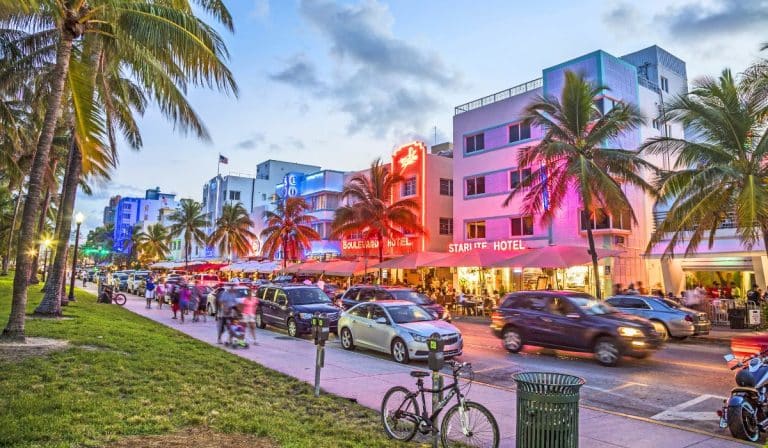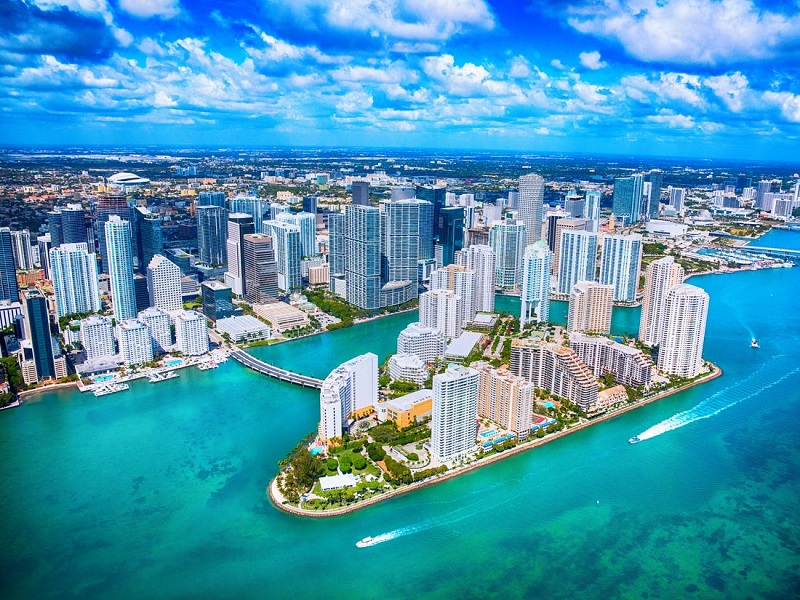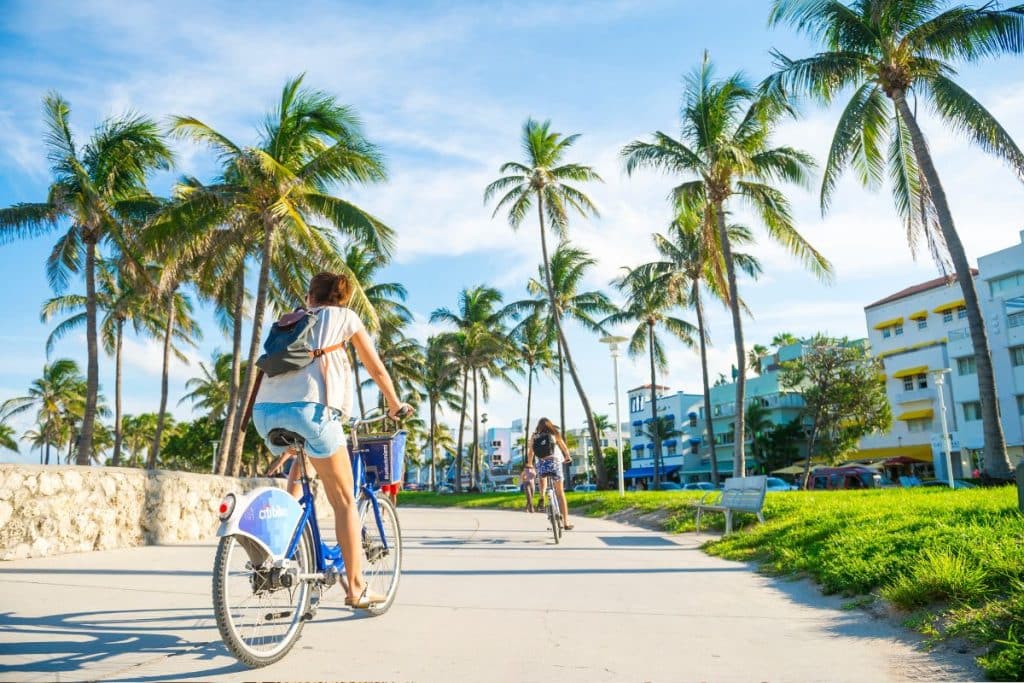Miami stands out as one of the safest cities in the United States, boasting a relatively low crime rate, particularly in its bustling tourist hubs.
By making prudent choices about where to go within the city and applying basic street smarts during your explorations, you can ensure a secure visit.
In 2023, Miami welcomed over 26.5 million visitors, and this number is anticipated to increase in the future.
Table of contents
LATEST NEWS from Miami:
March 5: Miami Beach implements new security protocols to prevent chaos during Spring Break
According to officials, the city will strengthen security measures for the imminent spring break by implementing curfews, bag checks, costly parking fines, and DUI checkpoints.
Loud music playing is strictly forbidden and beach access is limited at night.
“This weekend, our residents and visitors did see an enhanced staffing configuration of Miami Beach police officers,” said Christopher Bess, an officer with the Miami Beach Police Department.
Authorities from 18 different agencies will be present in addition to Miami Beach police.
March 5: Florida deploys state troops in major Spring Break cities (incl. Miami)
Governor Ron DeSantis of Florida announced the deployment of 140 state troopers to aid in crowd control during spring break, emphasizing a zero-tolerance policy for lawlessness.
These troopers will support 17 law enforcement agencies across the state, focusing on popular destinations like Miami Beach, Daytona Beach, and Panama City. DeSantis highlighted the importance of maintaining order and warned of strict consequences for misconduct, while Miami Beach’s mayor, Steven Meiner, emphasized ongoing efforts to enforce law and order beyond the spring break period.
Areas to Avoid
Here are some neighborhoods in Miami that should be avoided, especially after dark:
- Opa-Locka: This area has notably high rates of both property and violent crimes.
- Wynwood: The property crime rate in this neighborhood is 285 percent higher than the national average.
- Little Haiti: Violent crime and gang activity are prevalent here.
- Upper Eastside: This area experiences violent crimes that are 98 percent higher than the national average.
- Allapattah: Known for its red-light district, this neighborhood sees a significant amount of sex crimes.
- Little Havana: Crime rates here are 200 percent higher than the national average, and law enforcement faces challenges in maintaining control.
- Bayside Harbor: While popular among spring breakers, it’s advisable to avoid this area after dark.
- Overtown: This neighborhood is marked by gang activity, drug use, and violence.
- Liberty City: Known for its high rates of violent crimes, particularly in the more impoverished areas of the neighborhood.
Common Scams
When visiting Miami, be aware that it’s a bustling tourist destination where scams can occur. Here are some tips to help you avoid falling victim to scams:
Fake “Tourist Information” booths: Street vendors posing as tourist guides may try to persuade you to book tours with agencies that offer them the highest commissions. Always research tour agencies and read reviews before making a decision.
Exercise Caution with Nightlife Promoters: Club promoters often promise free entry and drinks at affiliated clubs. However, these offers may not be genuine, and you could end up paying unexpectedly high fees at the end of the night.
Stay Alert for Fake Kidnapping Scams: If you receive a call from an unknown number claiming that a family member has been kidnapped and demanding money, remain calm and verify the situation before taking any action. Scammers may use threatening tactics to coerce you into transferring money, but in most cases, your family members are safe.
Check Restaurant Bills Carefully: Some restaurants may add extra items to your bill in the hope that you won’t notice. Before paying, review your bill thoroughly to ensure its accuracy and that no unauthorized charges have been included.
Official Travel Advisories
Canada Travel Advisory
As per guidance from the Canadian government, petty crimes like pickpocketing and bag snatching are prevalent, particularly in urban areas and frequented tourist spots.
It recommends that its citizens take precautions to safeguard their belongings, including passports and travel documents, ensuring they are securely stored at all times. Additionally, individuals are advised against leaving bags or valuables unattended in parked vehicles, particularly rental cars, to mitigate the risk of such incidents.
UK Travel Advisory
The UK travel advisory for the United States, including territories like American Samoa and Puerto Rico, advises British nationals on travel risks to help them make informed decisions.
It covers preparation for travel, with specific advice for women, LGBT+ travelers, and disabled travelers. It emphasizes the importance of appropriate travel insurance covering itineraries, planned activities, and emergency expenses. Updated information, including the removal of storm warnings, can be found on their official website for more details.
Safety Tips for Miami
Here are essential guidelines for ensuring a safe visit to Miami:
- Refrain from using recreational drugs and exercise caution when smoking cigarettes in public areas such as hotels or bars.
- Stay vigilant against pickpockets and muggers while exploring Miami.
- Pay attention to your attire as some Miami clubs and casinos enforce dress codes for entry.
- Stay informed about hurricane seasons, particularly between June and December, and check weather forecasts before traveling to the city.
- Avoid venturing into the dangerous neighborhoods of Miami. (Refer to the “Areas to Avoid” section above for details.)



